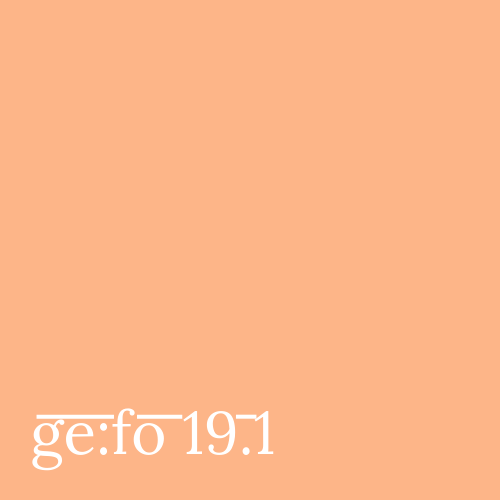Review: Seyran Ateş: Selam, Frau Imamin. Wie ich in Berlin eine liberale Moschee gründete
DOI:
https://doi.org/10.18716/ojs/gefo/2020.2518Keywords:
Selam, Frau Imamin. Wie ich in Berlin eine liberale Moschee gründete, Seyran Ateş, Islam, liberalAbstract
In lieu of an abstract, here is the first paragraph of the review:
By asking these questions, Seyran Ateş publicly expressed her disappointment with the German Left in the popular Austrian political TV talk-show Talk im Hangar 7, titled Ist der Islam noch zu retten? (Is it possible to save Islam?, my translation) that aired in 2017. Ateş, a well-known human rights lawyer and female Imam, had recently founded the Ibn Rushd-Goethe mosque in Berlin, which is the only self-described ‘liberal’ mosque in Germany. It is important to add here that the adjective ‘liberal’ in reference to Islamic places of worship or Islamic movements is a rather vague description, given the fact that many Muslims claim this attribute for their specific religious orientation. Ateş’s definition of ‘liberal’ implies – based on her claims made in Selam, Frau Imamin. Wie ich in Berlin eine liberale Moschee gründete (2017) (Selam, Mrs. Imam. How I Founded a Liberal Mosque in Berlin, my translation) – that the Ibn-Rushd-Goethe mosque serves as a counter-model to a place of worship where women and man are strictly separated. Moreover, women are encouraged to lead prayers and head coverings are not mandatory. In the spirit of building bridges between Muslim and non-Muslim cultures, Ateş explains that the mosque is purposely named after medieval Andalusian-Arabic polymath Ibn Rushd and German writer and statesman Johann Wolfgang von Goethe. Both are representatives of, in many ways, avant-garde thinking in different times and cultures. People of all genders, sexual orientations and religious denominations are welcome to visit the mosque and partake in the ceremonies.



